- Home
- W. W. Jacobs
More Cargoes Page 8
More Cargoes Read online
Page 8
THE DISBURSEMENT SHEET
The old man was dead, and his son Edward reigned in his stead. The oldman had risen from an humble position in life; his rule was easy, andhis manner of conducting business eminently approved of by the roughold seamen who sailed his small craft round the coast, and by that sharpclerk Simmons, on whose discovery the old man was wont, at times, to hughimself in secret. The proceedings, when one of his skippers came homefrom a voyage, were severely simple. The skipper would produce a bag,and, emptying it upon the table, give an account of his voyage; wheneverhe came to an expenditure, raking the sum out of the heap, until, atlength, the cash was divided into two portions, one of which went to theowner, the other to the skipper.
But other men other manners. The books of the inimitable Simmons beingoverhauled, revealed the startling fact that they were kept by singleentry; in addition to which, a series of dots and dashes appearedagainst the figures, forming a code, the only key to which was locked upsomewhere in Simmons's interior.
"It's a wonder the firm hasn't gone bankrupt long ago," said the newgovernor, after the clerk had explained the meaning of various signs andwonders. "What does this starfish against the entry mean?"
"It isn't a starfish, sir," said Simmons; "it means that one bag of sugargot wetted a little; then, if the consigners notice it, we shall know wehave got to allow for it."
"A pretty way of doing business, upon my word. It'll all have to bealtered," said the other. "I must have new offices too; this dingylittle hole is enough to frighten people away."
The conversation was interrupted by the entrance of Captain Fazackerly,of the schooner _Sarah Ann_, who, having just brought up in the river,had hastened to the office to report.
"Mornin', sir," said the captain respectfully; "I'm glad to see youhere, sir, but the office don't seem real like without your fathersitting in it. He was a good master, and we're all sorry to lose him."
"You're very good," said the new master somewhat awkwardly.
"I expect it'll take some time for you to get into the way of it," saidthe captain with a view to giving the conversation a more cheerful turn.
"I expect it will," said the new master, thinking of the starfish.
"It's a mercy Simmons was not took too," said the captain, shakinghis head. "As it is, he's spared; he'll be able to teach you. Thereain't"--he lowered his voice, not wishing to make Simmons undulyproud--"there ain't a smarter clerk in all Liverpool than wot he is."
"I'm glad to hear it," said the new master, regarding the old man withraised eyebrows, as he extricated a plethoric-looking canvas bag fromhis jacket pocket and dropped it with a musical crash on the chippedoffice table. His eyebrows went still higher, as the old man unfastenedthe string, and emptying the contents on to the table, knitted hisbrows into reflective wrinkles, and began to debit the firm with all theliabilities of a slow but tenacious memory.
"Oh, come," said the owner sharply, as the old man lovingly hooked outthe sum of five-and-sixpence as a first instalment, "this won't do,cap'n."
"Wot won't do, Mas'r Edward?" inquired the old man in surprise.
"Why this way of doing business," said the other. "It's notbusiness-like at all, you know."
"Well, it's the way me an' your pore old father has done it this lastthirty year," said the skipper, "an' I'm sure I've never knowinglycheated him out of a ha'penny; and a better man o' business than yourfather never breathed."
"Yes; well, I'm going to do things a bit differently," said the newmaster. "You must give me a proper disbursement sheet, cap'n, if youplease."
"And what may that be?" inquired Captain Fazackerly as, with greatslowness, he gathered, up the money and replaced it in the bag; "I neverheard of it afore."
"Well, I haven't got time to teach you bookkeeping," said the other,somewhat nettled at the old man's manner. "Can't you get some of yourbrother captains to show you? Some deep-sea man would be sure to know."
"I'll see what I can do, sir," said the skipper slowly as he turnedtowards the door. "My word was always good enough for your father."
In a moody, indignant frame of mind he stuck his hands furiously in histrousers' pockets, and passed heavily through the swing-doors. At othertimes he had been wont to take a genial, if heavy interest in passingevents; but, in this instance, he plodded on, dwelling darkly uponhis grievance, until he reached, by the mere force of habit, a certainfavourite tavern. He pulled up sharply, and, as a mere matter of dutyand custom, and not because he wanted it, went in and ordered a glass ofgin.
He drank three, and was so hazy in his replies to the young lady behindthe bar, usually a prime favourite, that she took offence, and availingherself, for private reasons, of a public weapon, coldly declined toserved him with a fourth.
"Wot?" said the astounded Fazackerly, coming out of his haze.
"You've had enough!" said the girl firmly, "You get aboard again, _andmind haw you do so_."
The skipper gazed at her for a moment in open-mouthed horror, and thenjamming his hat firmly over his brows, stumbled out of the door and intothe street, where he ran full into the arms of another mariner who wasjust entering.
"Why, Zacky, my boy," cried the latter, clapping him lustily on theback, "how goes it?"
In broken indignant accents the other told him.
"You come in with me," said the newcomer.
"I'll never enter that pub again," said the skipper.
"You come in with me," said the master-mind firmly.
Captain Fazackerly hesitated a moment, and then, feeling that he wassafe in the hands of the master of a foreign-going barque, followed himinto the bar, and from behind his back glared defiantly at his fair foe.
"Two glasses o' gin, my dear," said Captain Tweedie with the slightestpossible emphasis.
The girl, who knew her customer, served him without a murmur, deftlyavoiding the gaze of ungenerous triumph with which the injured captainfavoured her as he raised the cooling beverage to his lips. The glassemptied, he placed it on the counter and sighed despondently.
"There's something up with you, Zacky," said Tweedie, eyeing him closelyas he bit the end off a cigar; "you've got something on your mind."
"I've been crool hurt," said his friend in a hard, cold voice. "Myword ain't good enough for the new guv'nor; he wants what he calls adisbursement sheet."
"Well, give him one," said Tweedie. "You know what it is, don't you?"
Captain Fazackerly shook his head, and pushing the glasses along thecounter nodded for them to be refilled.
"You come aboard with me," said Tweedie after they had emptied them.
Captain Fazackerly, who had a doglike faith in his friend, followed himinto the street and on to his barque. In a general way he experienceda social rise when he entered the commodious cabin of that noble craft,and his face grew in importance as his host, after motioning him to aseat, placed a select array of writing materials before him.
"I s'pose I've got to do it," he said slowly.
"Of course you have," said Tweedie, rolling his cigar between his thinlips; "you've got orders to do so, haven't you? We must all obey thoseabove us. What would you do if one of your men refused to obey an orderof yours?"
"Hit him in the face," said Captain Fazackerly with simple directness.
"Just so," said Tweedie, who was always ready to impart moral teaching."And when your governor asks for a disbursement sheet you've got to givehim one. Now, then, head that paper--Voyage of the _Sarah Ann_, 180 tonsregister, Garston Docks to Limerick."
The captain squared his elbows, and, for a few seconds, nothing washeard but his stertorous breathing and the scratching of the pen; thena muttered execration, and Captain Fazackerly put down his pen with awoe-begone air.
"What's the matter?" said Tweedie.
"I've spelt register without the 'd.'" said the other; "that's whatcomes o' being worried."
"It don't matter," said Tweedie hastily. "Now what about stores? Wait abit though; of course ye repaired your side-lamps befo
re starting?"
"Lor', no!" said Captain Fazackerly, staring; "what for? They were allright."
"Ye lie," said Tweedie sternly, "you did! To repairs to side-lamps, tenshillings. Now then, did you paint her this trip?"
"I did," said the other, looking at the last entry in a fascinatedfashion.
"Let's see," said Tweedie meditatively--"we'll say five gallons of blackvarnish at one shilling and threepence a gallon----"
"No, no," said the scribe; "I used gas tar at threepence a gallon."
"Five gallons black varnish, one shilling and threepence a gallon,six-and-threepence," said Tweedie, raising his voice a little; "have yougot that down?"
After a prolonged struggle with his feelings the other said he had.
"Twenty-eight pounds black paint at twopence a pound," continuedTweedie.
"Nay, nay," said the skipper; "I allus saves the soot out of the galleyfor that."
The other captain took his cigar from his lips and gazed severely at hisguest.
"Am I dealing with a chimney-sweep or a ship's captain?" he inquiredplaintively; "it would simplify matters a bit if I knew."
"Go on, Captain Tweedie," said the other, turning a fine purple colour;"how much did you say it was?"
"Twenty-eight twos equals fifty-six; that's four-and-ninepence,"continued Tweedie, his face relaxing to receive the cigar again;"and twenty-eight pounds white lead at twenty-eight shillings ahundredweight----"
"Three penn'orth o' whiting's good enough for me, matey," said CaptainFazackerly, making a stand.
"See here," said Tweedie, "who's making out this disbursement sheet, youor me?"
"You are," said the other.
"Very good then," said his friend; "now don't you interrupt. Idon't mind telling you, you must never use rubbish o' that sort in adisbursement sheet. It looks bad for the firm. If any other owners sawthat in your old man's sheet he'd never hear the end of it, and he'dnever forgive you. That'll be--what did I say? Seven shillings. And nowwe come to the voyage. Ye had a tug to give ye a pluck out to the bar."
"No; we went out with a fair wind," said Captain Fazackerly, toying withhis pen.
"Ye lie; ye had a tug out to the bar," repeated Tweedie wearily. "Did yeshare the towing?"
"Why, no, I tell'e----"
"That'll be three pounds then," said Tweedie.
"If ye'd shared it it would have been two pound ten. You should alwaysstudy your owner in these matters, cap'n. Now, what about bad weather?Any repairs to the sails?"
"Ay, we had a lot o' damage," said Fazackerly, laying down his pen;"it took us days to repair 'em. Cost us four pounds. We had to put intoHolyhead for shelter."
"Four pounds," said Tweedie, his voice rising almost to a scream.
"Ay, all that," said Fazackerly very solemnly.
"Look here," said Tweedie in a choked voice. "Blown away fore lowertopsail, forestaysail, and carried away lifts to staysail. To sailmakerfor above, eleven pounds eighteen shillings and ten-pence. Then ye sayye put into Holyhead for shelter. Well, here in entering harbor we'llsay loss of port anchor and thirty fathoms of chain cable----"
"Man alive," said the overwrought skipper, hitting the table heavilywith his fist, "the old anchor's there for him to see."
"To divers recovering same, and placing on deck, two pound ten,"continued Tweedie, raising his voice. "Did you do any damage going intodock at Limerick?"
"More than we've done for years," said Fazackerly, and shaking his head,entered into voluminous details; "total, seven pounds."
"Seven pounds," said the exasperated Tweedie. "Seven pounds for allthat, and your insurance don't begin till twenty-five pounds. Why,damme, you ain't fit to be trusted out with a ship. I firmly b'lieveif you lost her you'd send in a bill for a suit of clothes, and call itsquare. Now take this down, and larn a business way o' doing things.In entering dock, carried away starboard cathead and started starboardchain plates; held survey of damage done: decided to take off channelbends, renew through bolts, straighten plates and replace same; also torenew cathead and caulk ship's side in wake of plate, six seams, etc.,etc. There, now, that looks better. Twenty-seven pounds eighteen andsevenpence halfpenny, and I think, for all that damage, it's a veryreasonable bill. Can you remember anything else?"
"You've got a better memory than I have," said his admiring friend."Wait a bit though; yes, I had my poor old dog washed overboard."
"Dog!" said the deep-sea man; "we can't put dogs in a disbursementsheet. 'Tain't business."
"My old master would have given me another one, though," grumbledFazackerly. "I wouldn't ha' parted with that dog for anything. He knewas much as you or me, that dog did. I never knew him to bite an officer,but I don't think there was ever a man came on the ship but what he'dhave a bit out of, sooner or later."
"Them sort of dogs do get washed overboard," said Tweedie impatiently.
"Boys he couldn't abear," pursued the other, in tones of tenderreminiscence; "the mere sight of a boarding-school of 'em out for a walkwould give him hydrophoby almost."
"Just so," said Tweedie. "Ah! there's cork fenders; ye may pick themup floating down the river, or they may come aboard in the night froma craft alongside; they're changeable sort o' things, but in thedisbursement sheet they must go, and best quality too, four-and-sixpenceeach. Any thing else?"
"There's the dog," said Fazackerly persistently.
"Copper nails, tenpence," said Tweedie the dictator.
"Haven't bought any for months," said the other, but slowly entering it.
"Well, it ain't exactly right," said Tweedie, shrugging his shoulders,"but you're so set on him going in."
"Him? Who?" asked Captain Fazackerly, staring.
"The dog," said Tweedie; "if he goes in as copper nails, he won't benoticed."
"If he goes in as tenpence, I'm a Dutchman," said the bereaved owner,scoring out the copper nails. "You never knew that dog properly,Tweedie."
"Well, never mind about the dog," said Tweedie; "let's cast the sheet.What do you think it comes to?"
"'Bout thirty pun'," hazarded the other.
"Thirty fiddlesticks," retorted Tweedie; "there you are in black andwhite--sixty-three pounds eighteen shillings and tenpence ha'penny."
"And is that what Mas'r Edward wants?" inquired Captain Fazackerlygasping.
"Yes; that's a properly drawn up disbursement sheet," said Tweedie insatisfied tones. "You see how it simplifies matters. The governor cansee at a glance how things stand, while, if you trusted to your memory,you might forget something, or else claim something you didn't have."
"I ought to have had them things afore," said Captain Fazackerly,shaking his head solemnly. "I'd ha' been riding in my carriage by now."
"Never ye dream of having another vy'ge without one," said Tweedie. "Idoubt whether it's lawful to render an account without one."
He folded the paper, and handed it to his friend, who, after inspectingit with considerable pride, tucked it carefully away in his breastpocket.
"Take it up in the morning," said Tweedie. "We'll have a bit o' tea downhere, and then we'll go round a bit afterwards."
Captain Fazackerly having no objection, they had tea first, and then,accompanied by the first mate, went out to christen the disbursementsheet. The ceremony, which was of great length, was solemnly impressivetowards the finish. Captain Tweedie, who possessed a very sensitive,highly-strung nature, finding it necessary to put a licensed victuallerout of his own house before it could be completed to his satisfaction.
The one thing which Captain Fazackerly remembered clearly the nextmorning when he awoke was the disbursement sheet. He propped It againstthe coffee-pot during breakfast, and read selections to his admiringmate, and after a refreshing toilet, proceeded to the office. Simmonswas already there, and before the skipper could get to the purpose ofhis visit, the head of the firm arrived.
"I've just brought the disbursement sheet you asked for, sir," said theskipper, drawing it from his pocket.
"Ah! yo
u've got it then," said the new governor, with a gracious smile;"you see it wasn't so much trouble after all."
"I don't mind the trouble, sir," interrupted Captain Fazackerly.
"You see it puts things on a better footing," said the other. "I cansee at a glance now how things stand, and Simmons can enter the itemsstraight away into the books of the firm. It's more satisfactory to bothof us. Sit down, cap'n."
The captain sat down, his face glowing with this satisfactoryrecognition of his work.
"I met Cap'n Hargreaves as I was a-coming up," he said; "and I explainedto him your ideas on the subject, an' he went straight back, as straightas he could go, to make out _his_ disbursement sheet."
"Ah! we shall soon have things on a better footing now," said thegovernor, unfolding the paper, while the skipper gazed abstractedlythrough the small, dirty panes of the office window at the bustle on thequay below.
For a short space there was silence in the office, broken only by thehalf-audible interjections of the reader. Then he spoke.
"Simmons!" he said sharply.
The old clerk slipped from his stool, and obeying the motions of hisemployer, inspected, in great astonishment, the first disbursement sheetwhich had ever entered the office. He read through every item in anastonished whisper, and, having finished, followed the governor'sexample and gazed at the heavy figure by the window.
"Captain Fazackerly," said his employer, at length, breaking a painfulsilence.
"Sir," said the captain, turning his head a little.
"I've been talking with Simmons about these disbursement sheets," saidthe owner, somewhat awkwardly; "Simmons is afraid they'll give him a lotof extra trouble."
The captain turned his head a little more, and gazed stolidly at theastonished Simmons.
"A man oughtn't to mind a little extra trouble if the firm wishes it,"he said, somewhat severely.
"He's afraid it would throw his books out a bit," continued the owner,deftly avoiding the gaze of the injured clerk. "You see, Simmons'bookkeeping is of the old-fashioned kind, cap'n, starfishes and allthat kind of thing," he continued, incoherently, as the gaze of Simmons,refusing to be longer avoided, broke the thread of his discourse. "So Ithink we'll put the paper on the fire, cap'n, and do business in the oldway. Have you got the money with you?"
"I have, sir," said Fazackerly, feeling in his pocket, as he mournfullywatched his last night's work blazing up the chimney.
"Fire away, then," said the owner, almost cordially.
Captain Fazackerly advanced to the table, and clearing his throat, fixedhis eyes in a reflective stare on the opposite wall, and commenced:--
"Blown away fore lower topsail, fore-staysail, and carried away lifts tostaysail. To sailmaker for above, eleven pounds eighteen shillings andtenpence," he said, with relish. "Tug out to the bar, three pounds. Totwenty-eight pounds black soot, I mean paint----"

_preview.jpg) Sailor's Knots (Entire Collection)
Sailor's Knots (Entire Collection)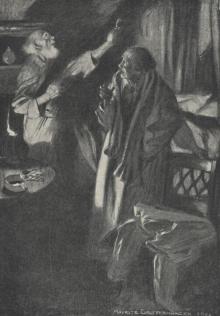 The Monkey's Paw
The Monkey's Paw Little Masterpieces of American Wit and Humor, Volume II
Little Masterpieces of American Wit and Humor, Volume II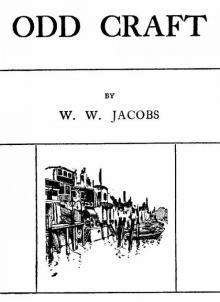 Odd Craft, Complete
Odd Craft, Complete The Lady of the Barge and Others, Entire Collection
The Lady of the Barge and Others, Entire Collection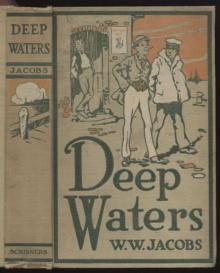 Deep Waters, the Entire Collection
Deep Waters, the Entire Collection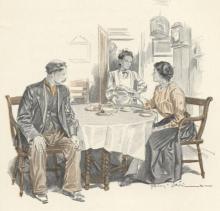 Three at Table
Three at Table Light Freights
Light Freights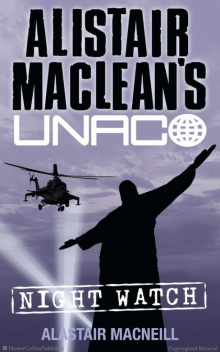 Night Watches
Night Watches The Three Sisters
The Three Sisters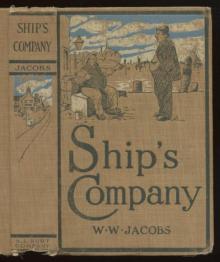 Ship's Company, the Entire Collection
Ship's Company, the Entire Collection His Lordship's Leopard: A Truthful Narration of Some Impossible Facts
His Lordship's Leopard: A Truthful Narration of Some Impossible Facts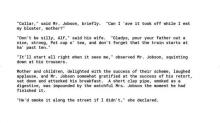 Fine Feathers
Fine Feathers My Man Sandy
My Man Sandy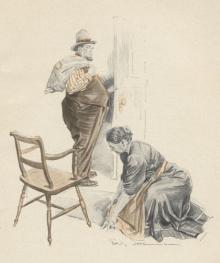 Self-Help
Self-Help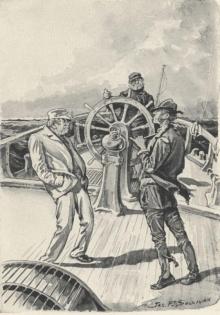 Captains All and Others
Captains All and Others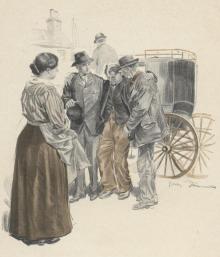 Back to Back
Back to Back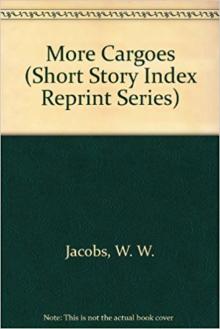 More Cargoes
More Cargoes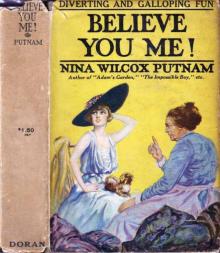 Believe You Me!
Believe You Me!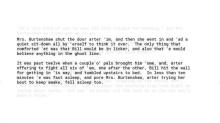 Keeping Up Appearances
Keeping Up Appearances The Statesmen Snowbound
The Statesmen Snowbound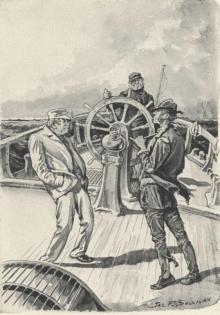 An Adulteration Act
An Adulteration Act The Old Soldier's Story: Poems and Prose Sketches
The Old Soldier's Story: Poems and Prose Sketches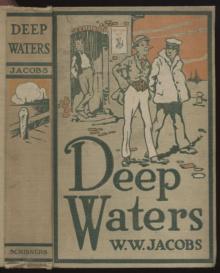 Husbandry
Husbandry Love and the Ironmonger
Love and the Ironmonger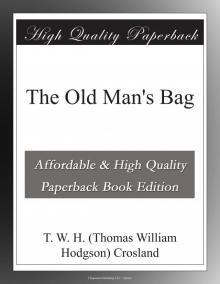 The Old Man's Bag
The Old Man's Bag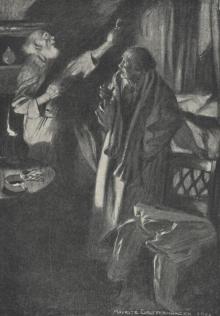 Dirty Work
Dirty Work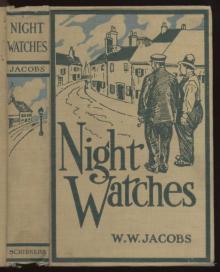 Easy Money
Easy Money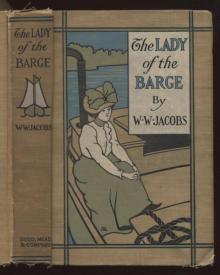 The Lady of the Barge
The Lady of the Barge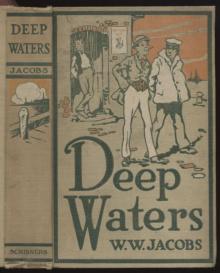 Bedridden and the Winter Offensive
Bedridden and the Winter Offensive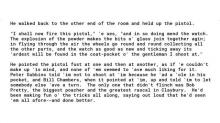 Odd Charges
Odd Charges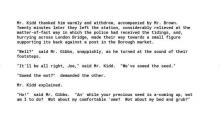 Friends in Need
Friends in Need Watch-Dogs
Watch-Dogs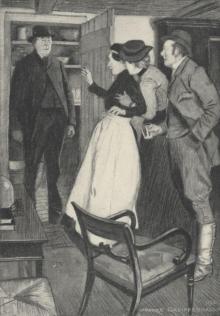 Cupboard Love
Cupboard Love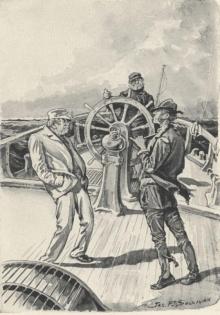 Captains All
Captains All A Spirit of Avarice
A Spirit of Avarice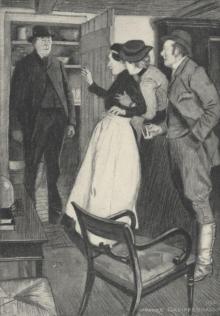 The Nest Egg
The Nest Egg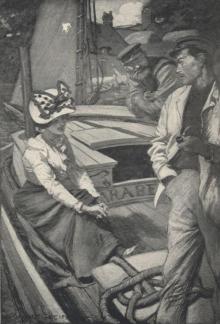 The Guardian Angel
The Guardian Angel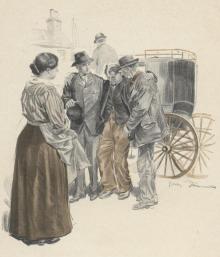 The Convert
The Convert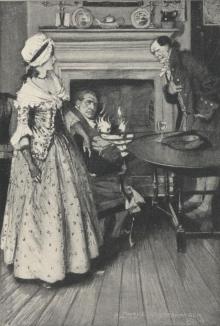 Captain Rogers
Captain Rogers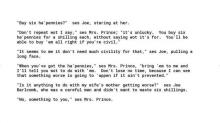 Breaking a Spell
Breaking a Spell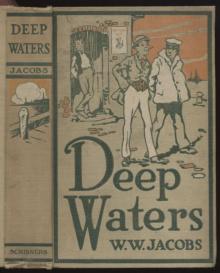 Striking Hard
Striking Hard The Bequest
The Bequest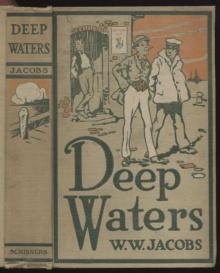 Shareholders
Shareholders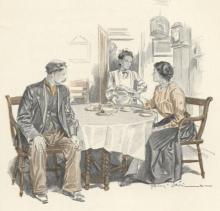 The Weaker Vessel
The Weaker Vessel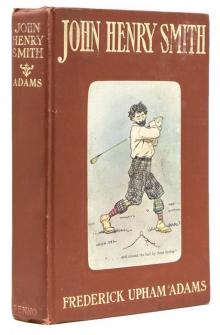 John Henry Smith
John Henry Smith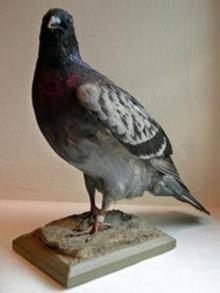 Four Pigeons
Four Pigeons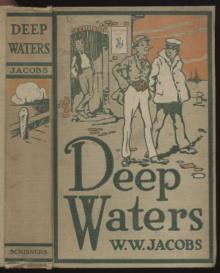 Made to Measure
Made to Measure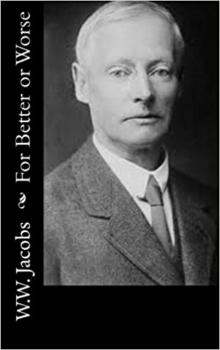 For Better or Worse
For Better or Worse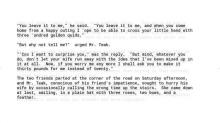 Fairy Gold
Fairy Gold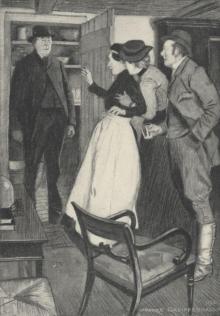 Family Cares
Family Cares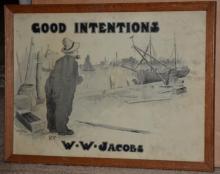 Good Intentions
Good Intentions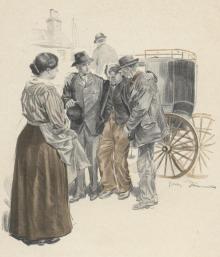 Prize Money
Prize Money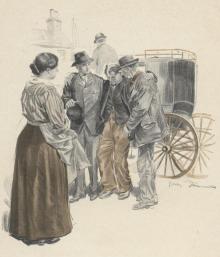 The Temptation of Samuel Burge
The Temptation of Samuel Burge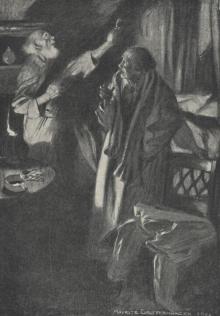 The Madness of Mr. Lister
The Madness of Mr. Lister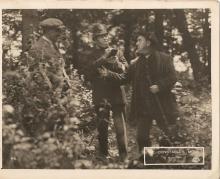 The Constable's Move
The Constable's Move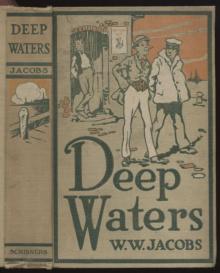 Paying Off
Paying Off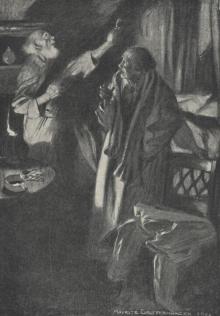 Double Dealing
Double Dealing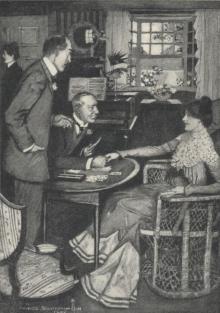 A Mixed Proposal
A Mixed Proposal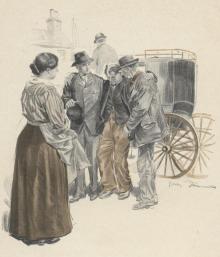 Bill's Paper Chase
Bill's Paper Chase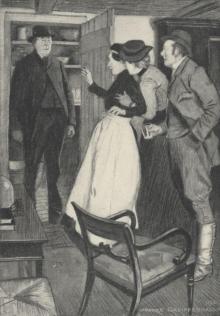 The Changing Numbers
The Changing Numbers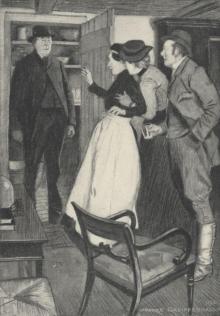 Over the Side
Over the Side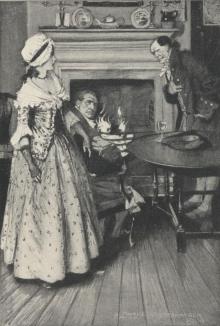 Lawyer Quince
Lawyer Quince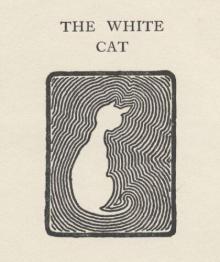 The White Cat
The White Cat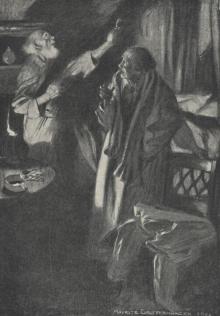 Admiral Peters
Admiral Peters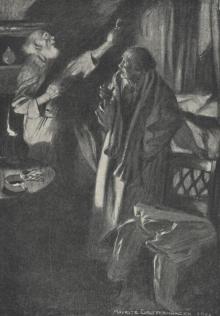 The Third String
The Third String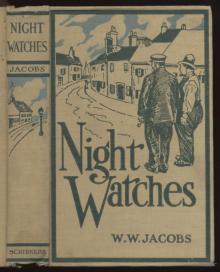 The Vigil
The Vigil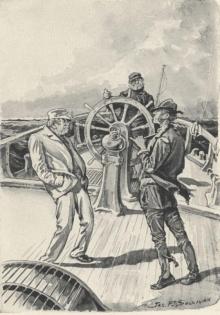 Bill's Lapse
Bill's Lapse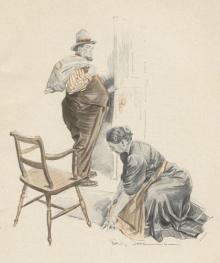 His Other Self
His Other Self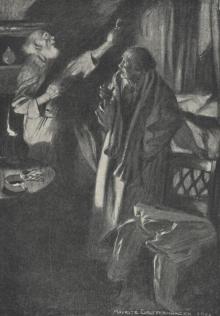 Matrimonial Openings
Matrimonial Openings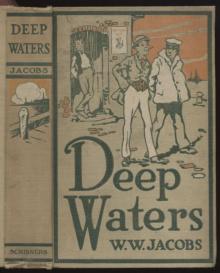 The Substitute
The Substitute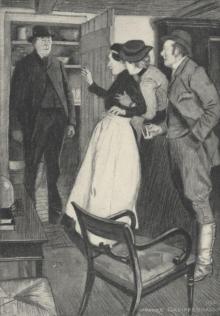 Deserted
Deserted Dual Control
Dual Control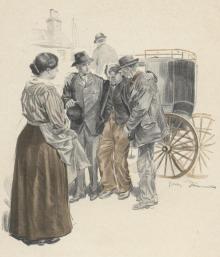 Homeward Bound
Homeward Bound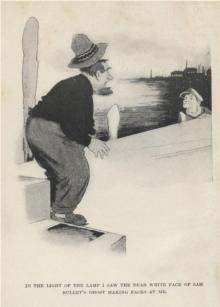 Sam's Ghost
Sam's Ghost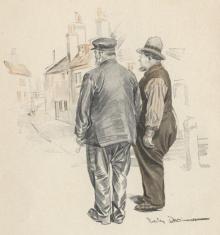 The Unknown
The Unknown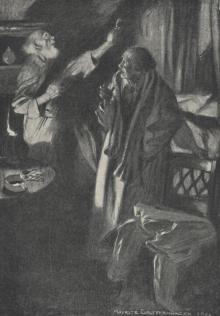 Stepping Backwards
Stepping Backwards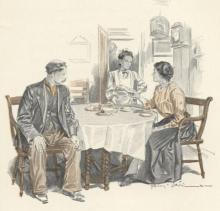 Sentence Deferred
Sentence Deferred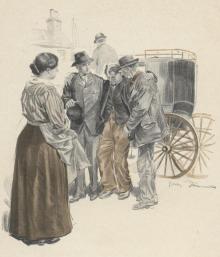 The Persecution of Bob Pretty
The Persecution of Bob Pretty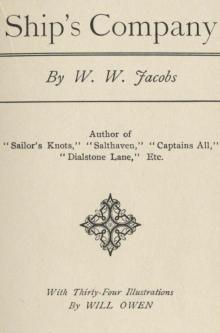 Skilled Assistance
Skilled Assistance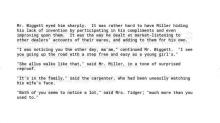 A Golden Venture
A Golden Venture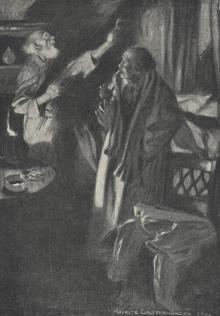 Establishing Relations
Establishing Relations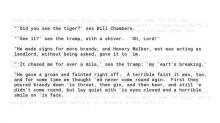 A Tiger's Skin
A Tiger's Skin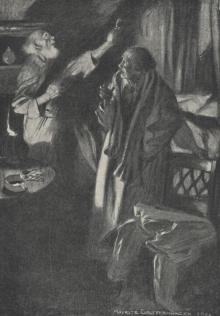 Bob's Redemption
Bob's Redemption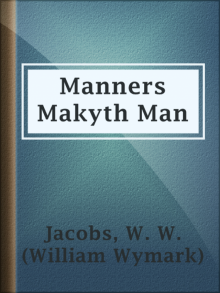 Manners Makyth Man
Manners Makyth Man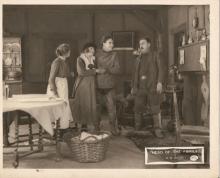 The Head of the Family
The Head of the Family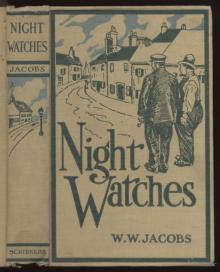 The Understudy
The Understudy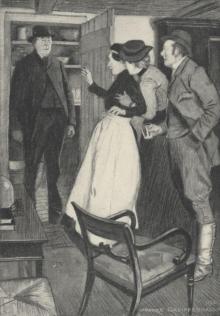 Odd Man Out
Odd Man Out Once Aboard the Lugger-- The History of George and his Mary
Once Aboard the Lugger-- The History of George and his Mary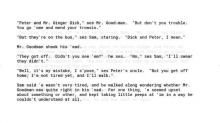 Peter's Pence
Peter's Pence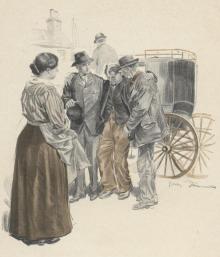 Blundell's Improvement
Blundell's Improvement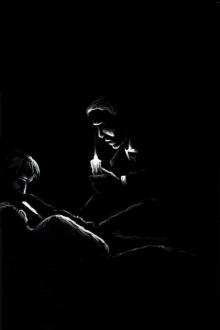 The Toll-House
The Toll-House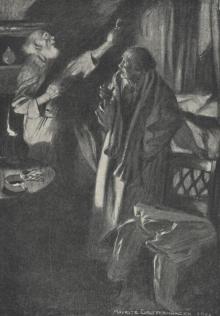 Dixon's Return
Dixon's Return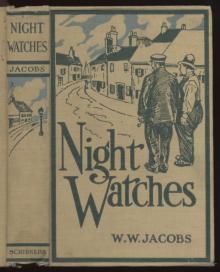 Keeping Watch
Keeping Watch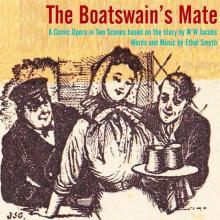 The Boatswain's Mate
The Boatswain's Mate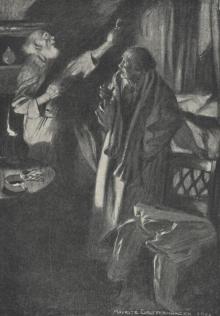 The Castaway
The Castaway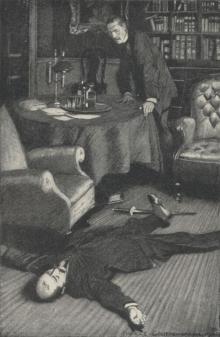 In the Library
In the Library The Monkey's Paw and Other Tales Of Mystery and the Macabre
The Monkey's Paw and Other Tales Of Mystery and the Macabre